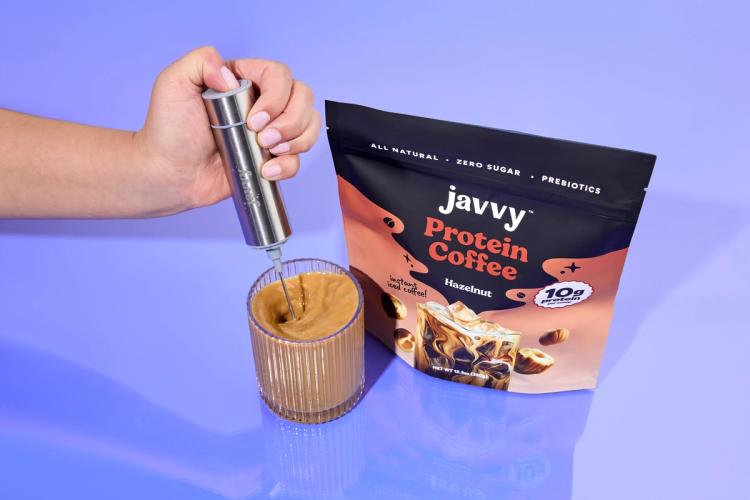
How Much Protein Should I Add to My Coffee? A Complete Guide
Key Takeaways:
How Do Caffeine and Protein Work Together?

Caffeine and protein cover different needs in the same cup. Caffeine blocks adenosine (the “sleepy” signal) in your brain, which helps sharpen focus and boost alertness.
Protein supplies essential amino acids to support muscle repair and growth after workouts, helps keep you full, and generally leads to more steady energy than a carb-only or sugary drink.
Combining protein and caffeine provides you with focus now and recovery support later. Pre-workout, a moderate caffeine hit can lift drive and perceived effort, while protein starts the recovery clock early. Post-workout, protein is the priority for muscle support, and a little caffeine can still help with alertness.
Many people also find that pairing protein with caffeine helps smooth the feeling of a “coffee crash,” since protein slows digestion and steadies the overall feel of the drink.
Why Does Protein Matter?

Protein is essential for a variety of key processes in the body, including:
Most adults need 0.8-1.2 grams of protein per kilogram of body weight for general health. Active individuals or those trying to build muscle often need 1.6-2.2 grams per kilogram.
Adding protein to your coffee is an easy way to help reach your daily intake, but the right amount depends on your goals, diet, and coffee preferences.
Recommended Protein Amounts for Coffee

When it comes to how much protein should be in your coffee for the best effects, there are a few things to keep in mind based on your goals.
1. Standard Serving
Around 10-20 grams of protein per cup may be ideal for most adults. This amount provides muscle-repair benefits and promotes satiety without overwhelming the taste.
2. For Weight Loss
For weight loss, around 20 grams is usually sufficient. This amount of protein provides fullness to curb mid-morning cravings. For best results, pair your protein coffee with fiber-rich foods (fruit or oats) for a more balanced breakfast.
3. Pre-Workout
Pre-workout, 10-25 grams of protein works well, depending on your weight and workout intensity. Combined with protein, caffeine can help enhance performance and focus.
4. Post-Workout
Post-workout, 20-30 grams of protein is recommended for muscle recovery and protein synthesis. Pair it with some carbs (banana or oatmeal) to replenish glycogen stores.
How To Mix Protein Powder in Coffee

Mixing protein powder into your coffee can be a helpful way to create your own “proffee.” Here’s how:
Blending or frothing helps prevent clumps and ensures a creamy, smooth texture — but this method will generally be a bit clumpy regardless.
Not a fan of off-tasting protein powder or clumpy coffee? That’s why we created Javvy.
Javvy Protein Coffee makes your daily cup do more. Each scoop starts with 100% real Arabica coffee for a smooth, low-acid sip, 10g premium whey protein, ~80 mg caffeine, and no added sugar for clean, steady energy without the crash. It mixes in seconds with water or milk and comes in tasty options like French Vanilla, Mocha, Caramel, Hazelnut, and more.
Final Thoughts
The ideal amount of protein in your coffee depends on your fitness goals, dietary needs, and taste preferences.
Most adults benefit from 10-30 grams per cup, providing satiety, muscle support, and convenience. For delicious protein coffee you can count on, sip Javvy.
FAQs
Can I add more than 30 grams of protein to coffee?
Yes, but taste and texture may be affected. Consider splitting protein across meals if needed.
How many scoops of protein powder should I use?
Usually 1 scoop for standard protein coffee; 2 scoops for higher protein goals.
Does the type of protein affect how much I should use?
Slightly. Whey and plant-based proteins usually stick to 1 scoop (~20-25g), while collagen is lower (~10-20g).
Sources:
Caffeine and Adenosine - Caffeine and Dopamine | HowStuffWorks
Protein and Amino Acids - Recommended Dietary Allowances | NCBI Bookshelf








